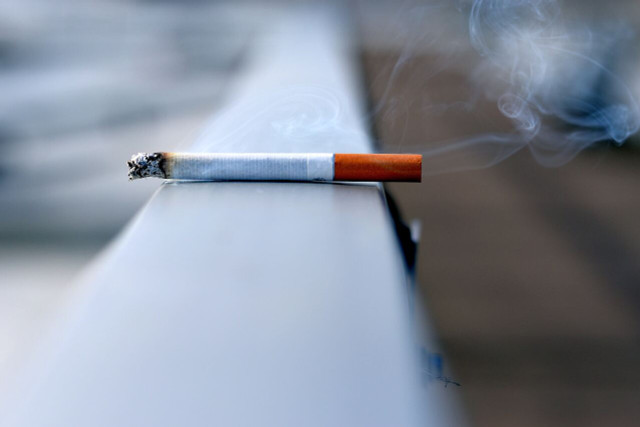
A single cigarette a day can’t really do much harm? Some people think so, but a new study shows that the health effects of this daily cigarette are significant.
It is now common knowledge that chain smokers expose themselves to major health risks. It is also clear: the more you smoke, the worse it is for your health.
- Smoking increases the risk of some diseases – including pneumonia, influenza, various cancers and COPD – as well as strokes and heart attacks.
- Smoking becomes addictive very quickly.
- If you want to become a non-smoker, you have various strategies and procedures at your disposal to achieve this.
- Pregnant women should not smoke at all to avoid harming their unborn child.
The assumption is that someone who has 20 times as much has 20 times higher risks. But if you only smoke one cigarette a day instead of 20, the harmful health effects are by no means divided by 20. This is shown by a meta-study from Great Britain.
One cigarette a day: study shows the effects
The researchers evaluated over 140 studies on the health disadvantages of smoking. The specialist article focuses on so-called “light smoking”, which includes one to five cigarettes a day, and its connection to cardiovascular diseases and strokes.
The result: The risk for light smokers is still half as great as for those who smoke over 20 cigarettes per day. According to the authors, in order to avoid such health problems, there is very little point in simply reducing smoking. However, there are really big advantages if you stop completely.
Compared to non-smokers, the risks change as follows:
- One cigarette a day increases the risk of heart disease by 48 percent (in men), 57 percent (in women) and
- the risk of a stroke increases by 25 percent (in men) and 31 percent (in women)
- On average, someone who smokes “only” once a day still has about half the risk of heavy smokers.
The study does not explain why the risks generally increase more for women than for men.
Why doesn’t the risk decrease the same with every cigarette?

(Photo: CC0 / Unsplash / Andres Siimon)
The fact that such a strong reduction in cigarette consumption only leads to such small positive effects is due to certain biological mechanisms.
“The problem is with cardiovascular disease, the impact on the blood system, the heart, occurs really quickly,” Alan Hackshaw, lead author of the article, told the Guardian. “It only takes a small amount of exposure to cause significant adverse effects. That’s why one cigarette a day carries a much greater risk than many people realize. If you smoke up to 20 cigarettes a day, the risk increases, but not excessively.”
The situation is different with lung cancer, another disease for which smokers have a significantly higher risk: here the risk of developing the disease falls in proportion to the number of cigarettes smoked daily.
Measures: No cigarettes a day instead of just one
The authors emphasize that their findings could also have a positive influence on health campaigns. These should therefore focus more on achieving complete freedom from smoking instead of encouraging people to just smoke less.
“There is no safe amount of smoking,” says Hackshaw, summarizing the findings.
According to the researchers, replacement products such as nicotine chewing gum, patches or e-cigarettes could help you quit smoking.
What happens to the body after a cigarette?
Smoking also has direct effects on the body, including the brain. Smoking also has a negative impact on health before you become acutely or chronically ill. Among other things:
-
Leads to more stress: Smokers are not more relaxed, but can only return to the normal, low stress level of non-smokers through cigarettes.
-
Bronchospasm: This basically means an irritated windpipe. Breathing feels more difficult and asthma-like wheezing may occur.
-
Increases mucus production: The lungs produce mucus to trap chemical and toxic substances. Small finger-like hairs normally move this mucus out of the lungs, including when coughing. Tobacco smoke paralyzes these hairs and allows mucus to build up in the smoker’s lungs.
-
Reflux disease: This disease includes symptoms of heartburn and the rise of stomach acid. Normally, the body prevents this by secreting an alkaline substance to neutralize digestive acids and by keeping the path between the esophagus and the stomach tightly closed – except when the stomach absorbs food from above. The alkaline substance produced by smokers is less neutralizing than that produced by non-smokers, allowing digestive acids a longer period of time to irritate the esophagus. Smokers also experience occasional loosening of the muscle that separates the esophagus and stomach, increasing the likelihood that stomach acid will rise and damage the esophagus.
Read more on Techzle\.com:
- Disposable e-cigarettes: Why you shouldn’t buy them
- Remove the smell of smoke: This will make your apartment smell fresh again
- Herbal cigarette: Why you should avoid the tobacco substitute